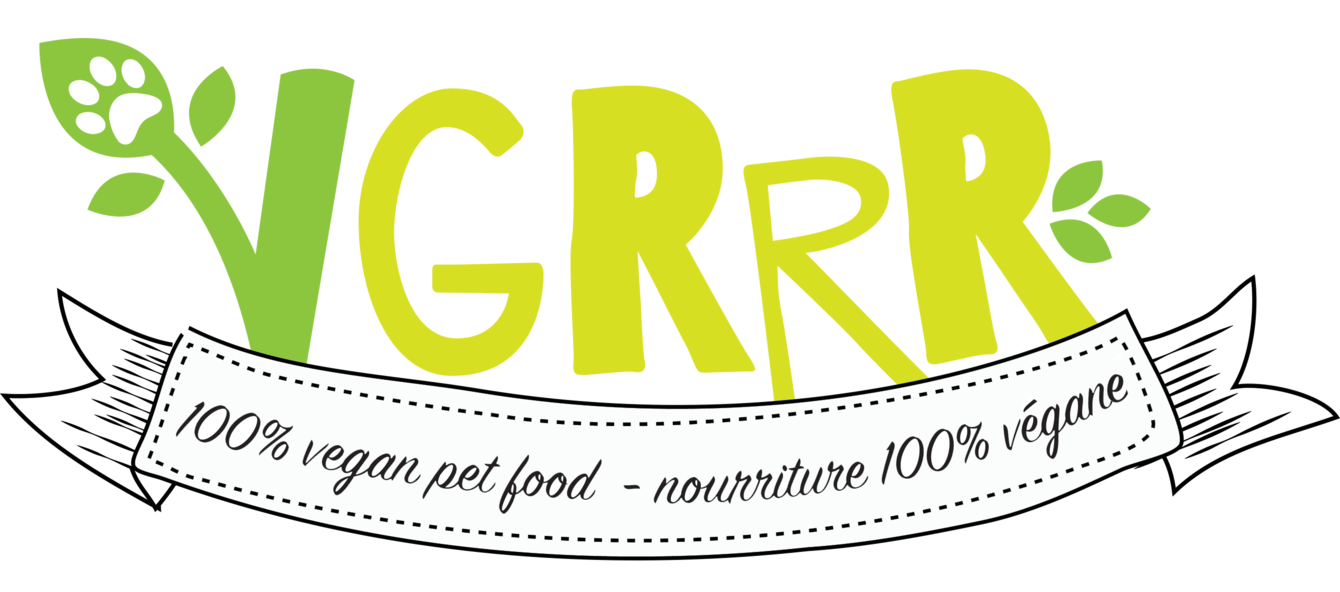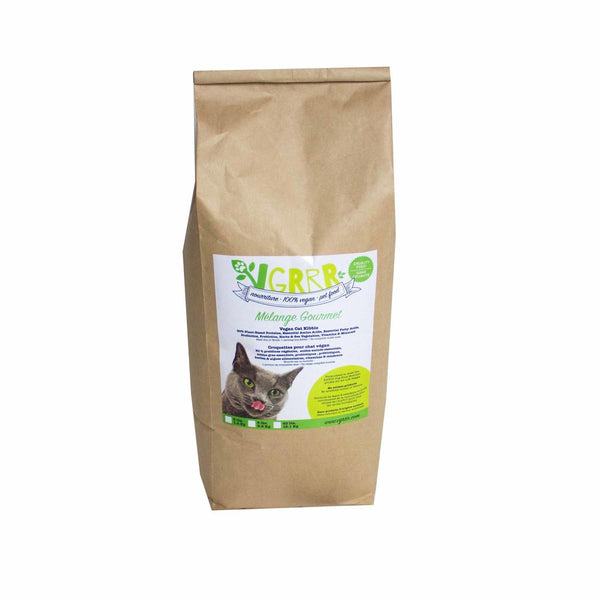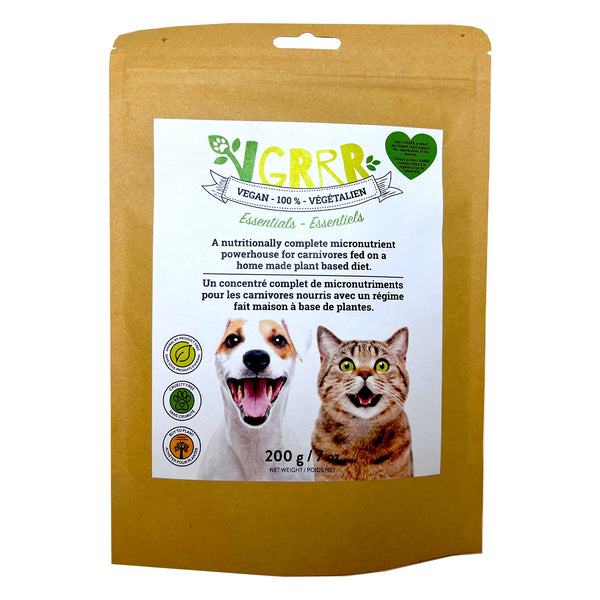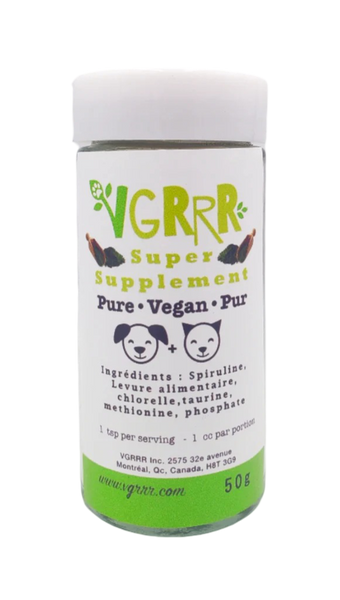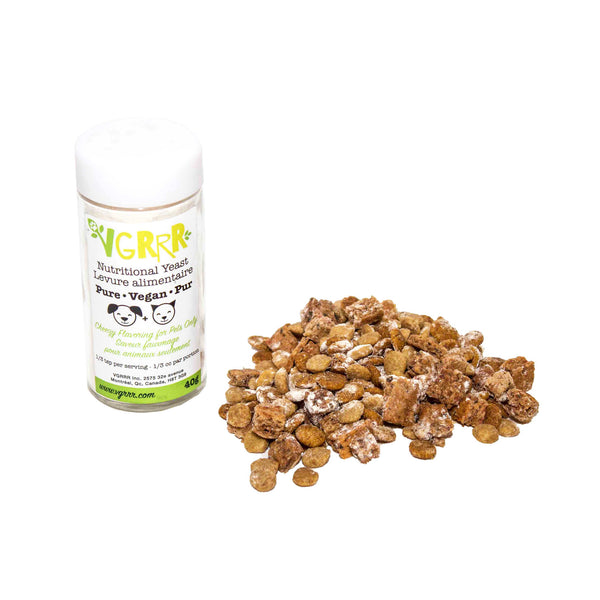
VegeCat Supplement
Preparing home-made cat food with Vegecat™ has a number of advantages:
-
Nutritionally complete meal
- Your cat is getting 100% of nutrients from a home cooked diet
- If you cook cat food at home without any supplements, you must ensure that your cat is getting enough of Taurine, Vitamin D3, Vitamin A, and the essential fatty acid arachidonic acid; these are rare nutrients, which is why supplementing is the best way to provide these nutrients for anyone cooking cat food at home
-
Full control over the ingredients
- Cooking cat meals at home gives the ability to select the ingredients you want
- You can include the ingredients your cat likes, and exclude those your cat doesn’t like
- For example, you can include sweet potato and green peas, and exclude corn and wheat
- Cooking cat meals at home gives the ability to select the ingredients you want
-
Variety
- By cooking cat food at home you have many options when it comes to formulating various flavours, so your cat can always have something different, which adds excitement and energy to your cat
-
Affordable shipping
- Cooking cat food at home and supplementing it is the most affordable way to feed your cat because you pay for shipping of only the vitamins and minerals, which have a small weight. The majority of the weight (and of the shipping cost) in dry kibble or canned food comes from other ingredients, but since you cook at home you buy all other ingredients from the local store and don’t have to pay for shipping of those ingredients.
NUTRITION
Vegecat™ supplement for cats provides the nutrients cats require from non-animal sources, including: Taurine, Vitamin D3, Vitamin A, and the essential fatty acid arachidonate that is required for numerous vital metabolic processes. Vegecat™ has been used by the compassionate caretakers of numerous cats throughout the world and over many, many years.
Vegecat™ products contain the below rare nutrients cats require, all from non-animal sources.
Cats need dietary taurine (a secondary amino acid), but significant quantities occur naturally only in animal tissues. A shortage causes blindness and heart disease.
Through biosynthesis most mammals make vitamin A from the yellow pigment (carotene) found in vegetables. Cats lack this ability, making a dietary source of this vitamin, found naturally only in animal tissues, essential.
Vitamin D is another essential vitamin, found naturally only in animal tissues as vitamin D3. Vegecat™ contains vitamin D3.
The essential fatty acid arachidonate is rare in non-animal sources. Cats require it for numerous vital metabolic processes including reproduction.
INGREDIENTS
Dicalcium Phosphate, Calcium Carbonate, Potassium Chloride, Lysine, Choline Chloride, Arginine, Taurine, DL-Methionine, Dried Kelp, Sodium Selenite, Ferrous Fumarate, d-alpha tocopherol acetate, Zinc Oxide, Mixed Tocopherols, Copper Amino Acid Chelate, Vitamin A Palmitate, Vitamin B12 Supplement, Riboflavin, Cholecalciferol
GUARANTEED ANALYSIS:
Crude Protein (min): 8.5%, Crude Fat (min): 0.4%, Crude Fiber (max): 2%, Moisture (max): 7%, Arginine (min): 6.9%, Lysine (min): 7.9%, Methionine (min): 5%, Calcium (min): 14.65%, Phosphorus (min): 3.95%, Potassium (min): 8%, Iron (min): 1000 mg/kg, Copper (min): 60 mg/kg, Zinc (min): 860 mg/kg, Iodine (min): 17 mg/kg, Selenium (min): 8.4 mg/kg, Vitamin A (min): 120,000 IU/kg, Vitamin D3 (min): 16,000 IU/kg, Vitamin E (min): 1,490 IU/kg, Riboflavin (min): 95 mg/kg, Vitamin B12 (min): 1.14 mg/kg, Choline (min): 49,000 mg/kg, Taurine (min): 6.3%
SUPPLEMENT FACTS (per 1 gram)
Arginine: 69 mg, Lysine: 79 mg, Methionine: 50 mg, Calcium: 146.5 mg, Phosphorus: 39.5 mg, Potassium: 80 mg, Iron: 1 mg, Copper: 0.06 mg, Zinc: 0.86 mg, Iodine: 0.017 mg, Selenium: 0.0084 mg, Vitamin A: 1120 IU, Vitamin D3: 16 IU, Vitamin E: 1.49 IU, Riboflavin: 0.095 mg, Vitamin B12: 0.00114 mg, Choline: 49 mg, Taurine: 63mg
RECIPES
Use the kibble recipe (in the Vegecat™ instructions) to make a delicious kibble. Cut kibble pieces larger or smaller according to the size of your cats. You can certainly have your own recipes, but do ensure you add enough Vegecat™ (see amounts below).
DURATION & FEEDING AMOUNTS
- a 100 g bag of Vegecat™ lasts a 10 lb (4.5 kg) adult cat for 1 month.
- a 250 g bag of Vegecat™ lasts a 10 lb (4.5 kg) adult cat for 3 months.
- a 500 g bag of Vegecat™ lasts a 10 lb (4.5 kg) adult cat for 6 months.
KITTENS
Kittens (up to 12 months old) should be offered ready-made commercial kibble (such as Evolution Diet's, which is suitable for all-life-stages, including kittens).
Vegecat™ and Urinary health
There are some consideration for urinary health. Cats should have an acidic urine pH of 6.0 to 6.5. It is recommended to test the urine at home or at a veterinarian’s office before switching the diet and about 3-weeks after transitioning to a new diet, then periodically after – twice in the first year and at least yearly after. If alkaline urine is a problem, add cranberry powder or vitamin C (ascorbic acid) to the diet.
*** All variants come in repackaged compostable eco-friendly bags. ***
